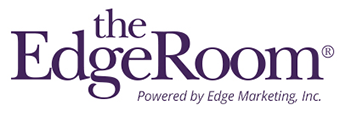https://www.theedgeroom.com/wp-content/uploads/2023/01/edge-room-updated-1.png
0
0
LHasen@getcaret.com
https://www.theedgeroom.com/wp-content/uploads/2023/01/edge-room-updated-1.png
LHasen@getcaret.com2024-01-20 09:50:382024-01-20 09:50:38CARET Legal Workflows Are Now Available
https://www.theedgeroom.com/wp-content/uploads/2023/01/edge-room-updated-1.png
0
0
bart@winnow.law
https://www.theedgeroom.com/wp-content/uploads/2023/01/edge-room-updated-1.png
bart@winnow.law2024-01-20 09:47:552024-01-20 09:47:55An overview of the most common compliance pain points solved by Winnow
https://www.theedgeroom.com/wp-content/uploads/2023/01/edge-room-updated-1.png
0
0
dan.oday@goecfx.com
https://www.theedgeroom.com/wp-content/uploads/2023/01/edge-room-updated-1.png
dan.oday@goecfx.com2024-01-20 09:41:282024-01-20 09:43:47ECFX's Policy On Federal ECF Credentials & Sealed Documents
https://www.theedgeroom.com/wp-content/uploads/2023/01/edge-room-updated-1.png
0
0
events@tabs3.com
https://www.theedgeroom.com/wp-content/uploads/2023/01/edge-room-updated-1.png
events@tabs3.com2024-01-19 14:16:472024-01-19 14:16:47Tabs3 Software Launches Tabs3 Cloud, Providing Another Option for Legal Billing and Accounting
https://www.theedgeroom.com/wp-content/uploads/2023/01/edge-room-updated-1.png
0
0
jamie.fonarev@eve.legal
https://www.theedgeroom.com/wp-content/uploads/2023/01/edge-room-updated-1.png
jamie.fonarev@eve.legal2024-01-19 14:10:272024-01-19 14:11:14Frontier Law Center joins Eve at LegalWeek to discuss their AI-augmentation journey
https://www.theedgeroom.com/wp-content/uploads/2023/01/edge-room-updated-1.png
0
0
avyas@knovos.com
https://www.theedgeroom.com/wp-content/uploads/2023/01/edge-room-updated-1.png
avyas@knovos.com2024-01-19 13:58:342024-01-19 13:58:34Knovos to Showcase Legal Technology Solutions at LegalWeek 2024
https://www.theedgeroom.com/wp-content/uploads/2023/01/edge-room-updated-1.png
0
0
ashley.graham@priorilegal.com
https://www.theedgeroom.com/wp-content/uploads/2023/01/edge-room-updated-1.png
ashley.graham@priorilegal.com2024-01-19 13:55:262024-01-19 13:55:26Law Firm Scorecarding Explained – Best Practices and Tips for Success
https://www.theedgeroom.com/wp-content/uploads/2023/01/edge-room-updated-1.png
0
0
LHasen@getcaret.com
https://www.theedgeroom.com/wp-content/uploads/2023/01/edge-room-updated-1.png
LHasen@getcaret.com2024-01-19 08:45:012024-01-19 08:45:01CARET Legal Inaugurates its Revolutionary ‘Workflows’ Feature, Simplifying Automation for Legal Professionals and Midsized Firms
https://www.theedgeroom.com/wp-content/uploads/2023/01/edge-room-updated-1.png
0
0
ekyle@rws.com
https://www.theedgeroom.com/wp-content/uploads/2023/01/edge-room-updated-1.png
ekyle@rws.com2024-01-19 08:38:132024-01-19 08:38:13AI-powered machine translation solutions that transform your multilingual content. Secure your AI advantage with Language Weaver.
https://www.theedgeroom.com/wp-content/uploads/2023/01/edge-room-updated-1.png
0
0
dan.oday@goecfx.com
https://www.theedgeroom.com/wp-content/uploads/2023/01/edge-room-updated-1.png
dan.oday@goecfx.com2024-01-19 08:33:362024-01-19 08:33:36How Software for Personal Injury Law Firms Improves Your Practice



